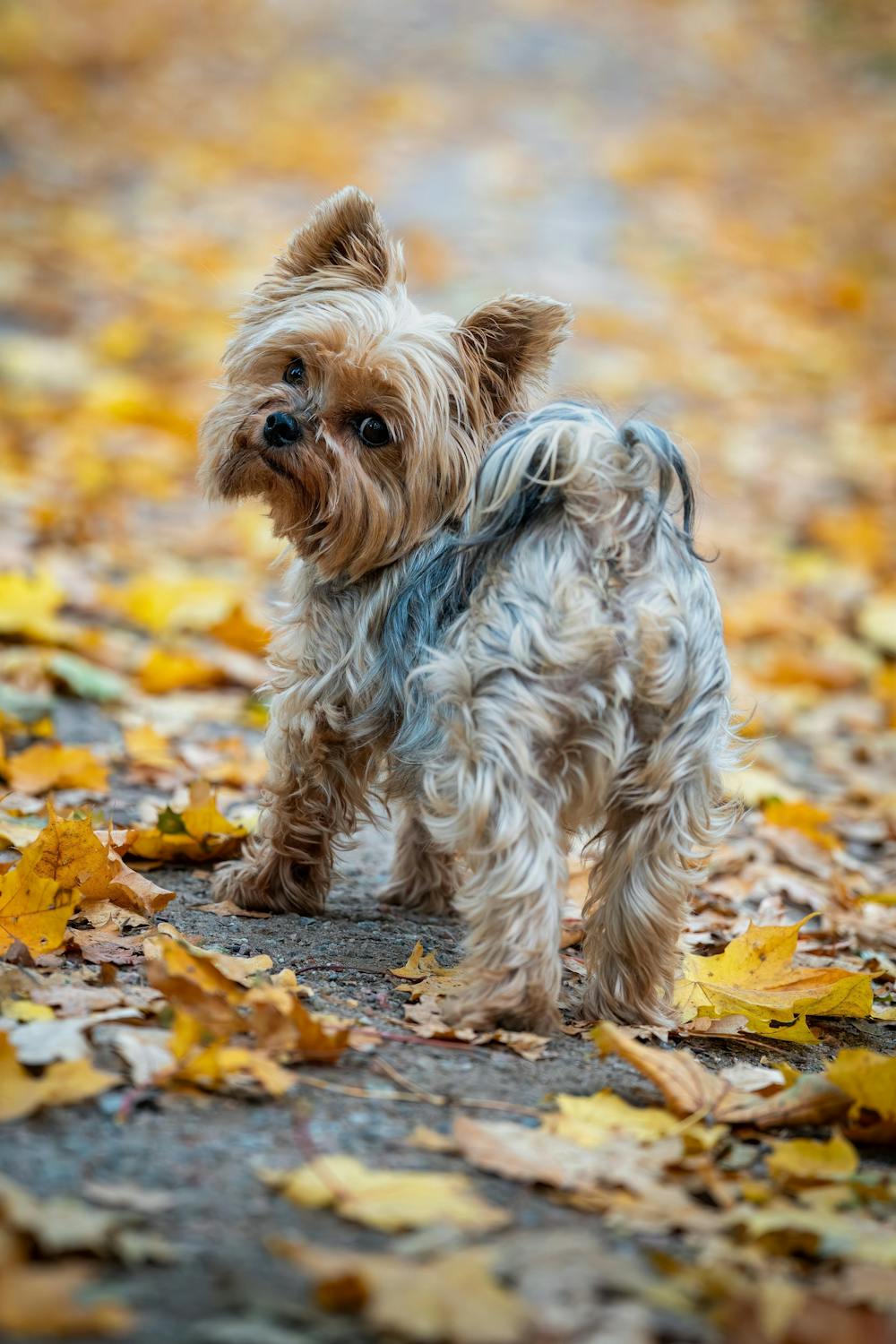

The Yorkshire Terrier or "Yorkies" is a small breed from Yorkshire, England in the early 19th century, originally bred for hunting vermin in mills and mines. Thickly coated-and-loved, quickly turned into cherished pet-buddies. Confident, loving, and loyal, they are little animals, but they have to be treated with caution. They are city-dwellers and can act as if they are very important. With their sweetness, intelligence, and spunk, Yorkshire terriers are simply charming, sweet pets.
Grooming
Breed Group
Coat Type
Exercise
Life Span
Size
Yorkshire Terriers are renowned for their stubborn disposition and lively personality, confident regardless of their small stature. They are intelligent little fellows, so they are not difficult to train if positive reinforcement is used. Very playful, they are affectionate companions and love human attention, often forming extremely strong bonds with their families. Active and energetic, Yorkshire Terriers need daily exercise to stay mentally and physically stimulated. They can be feisty, especially around unfamiliar dogs, making early socialization crucial. Yorkshire Terriers are also known to be highly vocal, making them excellent watchdogs with a distinctly sharp bark. While they are gentle with children, they require supervision due to their small and delicate build—rough play can lead to injury. Despite their stubborn nature, with patience and consistent training, Yorkshire Terriers can learn commands easily. Their delightful disposition, intelligence, and vigor make them great family pets.
Yorkshire Terriers are friendly dogs that require around 30 minutes of exercise daily. They are eager learners, which makes them well-suited for training, but their occasional stubbornness requires consistency. Recall training is crucial to ensure they respond promptly to commands and stay safe. Positive reinforcement techniques, such as treats and praise, work best to encourage good behavior. Yorkies have short attention spans, so training sessions should be kept to 5-10 minutes to maintain engagement. Early exposure to different environments, people, and animals helps them become well-socialized adults. Yorkshire Terriers benefit from short walks, playtime in a fenced yard, and mentally stimulating games like fetch or hide-and-seek. Ideal activities also include agility training and obedience exercises that challenge both their brains and bodies. Puzzle toys are another great way to provide mental stimulation when outdoor play is limited.
Though Yorkshire Terriers are generally healthy, owners should be aware of common health issues:
Patellar Luxation: A condition where the kneecap slips out of place, causing pain and difficulty walking. It is usually congenital and can be managed through weight control, while severe cases may require surgery.
Tracheal Collapse: A weakening and narrowing of the trachea, leading to breathing difficulties. Using a harness instead of a collar and maintaining a healthy weight can help alleviate symptoms. Severe cases may require surgical intervention.
Dental Disease: Due to their small mouths, Yorkshire Terriers are prone to overcrowded teeth and plaque buildup, leading to periodontal disease. Daily brushing and professional dental cleanings help maintain oral health.
Hypoglycemia: Low blood sugar can cause weakness, fainting, and confusion, particularly in puppies. Feeding small, frequent meals helps prevent this condition.
Liver Shunt (Portosystemic Shunt): A congenital defect where blood bypasses the liver, leading to toxin buildup in the body. Early detection and veterinary care are essential for management.
Yorkshire Terriers have long, silky fur that requires regular grooming to prevent matting and tangling. While they shed minimally, frequent brushing is essential to keep their coat healthy. Brushing 3-4 times per week removes loose fur and prevents knots. Bathing once a month with a gentle dog shampoo keeps their coat clean and shiny. A pin brush and a comb are ideal tools for grooming. Owners should check for parasites, lumps, or skin growths, clean wax buildup in their ears, and monitor their eyes for discharge. Regular nail trimming is necessary to prevent overgrowth, and dental hygiene should be maintained with daily brushing.
A balanced diet is essential for Yorkshire Terriers to maintain good health. They do well on high-quality commercial dog food formulated for small breeds, rich in animal protein sources like chicken, turkey, or fish. Homemade diets with lean meats, vegetables (e.g., carrots, peas), and complex carbohydrates (e.g., sweet potatoes, brown rice) can also be beneficial but should be approved by a veterinarian. Yorkshire Terrier puppies should be fed 3-4 small meals per day until they reach one year of age, with a daily intake of ⅓ to ½ cup of quality food. Adults typically require ⅓ to ½ cup of food daily, divided into two meals, with portions adjusted based on size and activity level to prevent obesity. Fresh fruits like blueberries or apples (with seeds removed) can be offered as occasional treats. Fresh water should always be available.